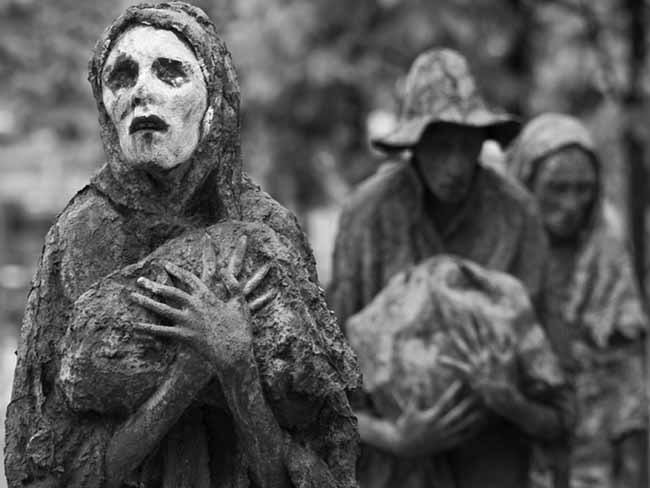I was hovering over depression recently and was taken aback by a comment someone made about people who are subject to depression, becoming depressed by way of direct causation.  By that I mean X screams at Y, and Y gets verklempt and goes all Goth and becomes suicidal (to compress things a bit). It has always seemed to me (and I think people like Durkheim who looked at the societal implications of broad depression) that depression is not a matter of discreet response but is rather more systemic. And then I realized that it is the “nonsystemic” nature of depression which lies at depression’s core.
By that I mean X screams at Y, and Y gets verklempt and goes all Goth and becomes suicidal (to compress things a bit). It has always seemed to me (and I think people like Durkheim who looked at the societal implications of broad depression) that depression is not a matter of discreet response but is rather more systemic. And then I realized that it is the “nonsystemic” nature of depression which lies at depression’s core.
“Good Grief!”, you gasp, “Now what is he trying to say?”
What I am saying is the depression arises on a growing sense of entropy (in the non-technical sense; my apologies to physicists everywhere). Generally, entropy is defined as
A measure of the amount of disorder in the Universe, or of the availability of the energy in a system to do work. As energy is degraded into heat, it is less able to do work, and the amount of disorder in the Universe increases (see arrow of time). This corresponds to an increase in entropy. In a closed system, entropy never decreases, so the Universe as a whole is slowly dying. In an open system (for example, a growing flower), entropy can decrease and order can increase, but only at the expense of a decrease in order and an increase in entropy somewhere else (in this case, in the Sun, which is supplying the energy that the plant feeds off).1
More popularly the term is used to describe increasing uncertainly and disorder in a system. I don’t want to belabor the thesis they promote, but I think Carhart-Harris et al. touch upon the idea I am suggesting here.
Entropy is a dimensionless quantity that is used for measuring uncertainty about the state of a system but it can also imply physical qualities, where high entropy is synonymous with high disorder. Entropy is applied here in the context of states of consciousness and their associated neurodynamics, with a particular focus on the psychedelic state. The psychedelic state is considered an exemplar of a primitive or primary state of consciousness that preceded the development of modern, adult, human, normal waking consciousness. Based on neuroimaging data with psilocybin, a classic psychedelic drug, it is argued that the defining feature of “primary states” is elevated entropy in certain aspects of brain function, such as the repertoire of functional connectivity motifs that form and fragment across time. Indeed, since there is a greater repertoire of connectivity motifs in the psychedelic state than in normal waking consciousness, this implies that primary states may exhibit “criticality,” i.e., the property of being poised at a “critical” point in a transition zone between order and disorder where certain phenomena such as power-law scaling appear. Moreover, if primary states are critical, then this suggests that entropy is suppressed in normal waking consciousness, meaning that the brain operates just below criticality. It is argued that this entropy suppression furnishes normal waking consciousness with a constrained quality and associated metacognitive functions, including reality-testing and self-awareness. It is also proposed that entry into primary states depends on a collapse of the normally highly organized activity within the default-mode network (DMN) and a decoupling between the DMN and the medial temporal lobes (which are normally significantly coupled). These hypotheses can be tested by examining brain activity and associated cognition in other candidate primary states such as rapid eye movement (REM) sleep and early psychosis and comparing these with non-primary states such as normal waking consciousness and the anaesthetized state.2
In other words, when we hear people talking about “coming apart at the seams”, or “going to bits” what we really may be hearing is their attempt to express the sense of increasing entropy, a feeling that all order is breaking down, including the manner in which they “fit” into the circumstances around them.
As I can attest to personally, as these gaping black holes open before us, it is this sense of purposelessness, senselessness, and chaos that reach and envelop us. The good news is that in many cases one can just refuse to “feed” that sense. “Pitter, Patter!” as Wayne would say.3
And, perhaps that is why those who have fortified their psyches with excessive structure are so at risk when that structure is threatened. They feel the ground beneath their feet feet shifting, and the fear they feel is not just the fear of imminent physical consequence, but the fear that nothing makes sense any more.
What I find curious is where those who do not seem to experience fear, still experience this since of entropy. Is that a mark of reduced ego, a misinterpretation of chemical signal, the result of some insight?
It would seem that people can manage to suppress entropy, perhaps using the same types of neural circuits used in cognitive in hibition (thought to regulation analytical thinking) and that such management alleviates, remediates, obfuscates or otherwise resolves the onset of depression. But it also suggests that those living in a world perceived to be completely ordered would be subject to acute depression should their perceptions waiver; in other words, their delusions of actual order keep their brains from having to balance the real existence of disorder.
hibition (thought to regulation analytical thinking) and that such management alleviates, remediates, obfuscates or otherwise resolves the onset of depression. But it also suggests that those living in a world perceived to be completely ordered would be subject to acute depression should their perceptions waiver; in other words, their delusions of actual order keep their brains from having to balance the real existence of disorder.


 argument over whether we can effectively populate the universe with ghosts of our own emotional and juvenile angst.
argument over whether we can effectively populate the universe with ghosts of our own emotional and juvenile angst.
 dribble there on your tunic, or a holy pronouncement from way on high? Of course, once some clever prelate started marketing “holy water” all bets were off as the only stain water leaves is by way of contaminants (does the Lord take into account turbidity and mineral content?)
dribble there on your tunic, or a holy pronouncement from way on high? Of course, once some clever prelate started marketing “holy water” all bets were off as the only stain water leaves is by way of contaminants (does the Lord take into account turbidity and mineral content?)